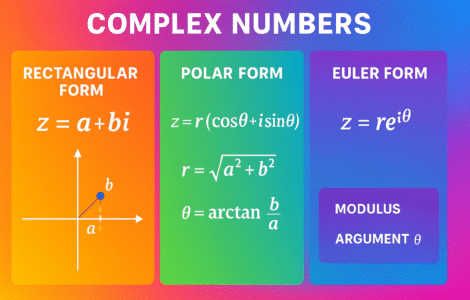
Complex Numbers
Free
About This Course
This topic introduces the concept of complex numbers, extending the number system beyond the real numbers. Learners explore arithmetic operations, polar form, modulus-argument form, De Moivre’s Theorem, and the use of complex numbers in solving equations.
Learning Outcomes:
The learner should be able to:
- Discover the characteristics of complex numbers including powers of i, real and imaginary parts, powers of complex numbers.
- State the general form of a complex number and conjugate of a complex number.
- Perform operations on complex numbers, e.g., addition, subtraction, multiplication and division.
- Solve equations with complex coefficients, quadratic and higher-order equations with complex roots.
- Represent complex numbers on the argand diagram.
- Represent the locus of a complex equation and inequalities on a complex plane.
- Define modulus and argument of a complex number.
- Express complex numbers in polar forms
- Apply De Moivre’s theorem in determining roots and powers of complex numbers.
- Use De Moivre’s theorem to simplification of trigonometric expressions and solving equations.
- Appreciate the application of complex numbers to solve modelling problems across mathematical and real-life scenarios.





